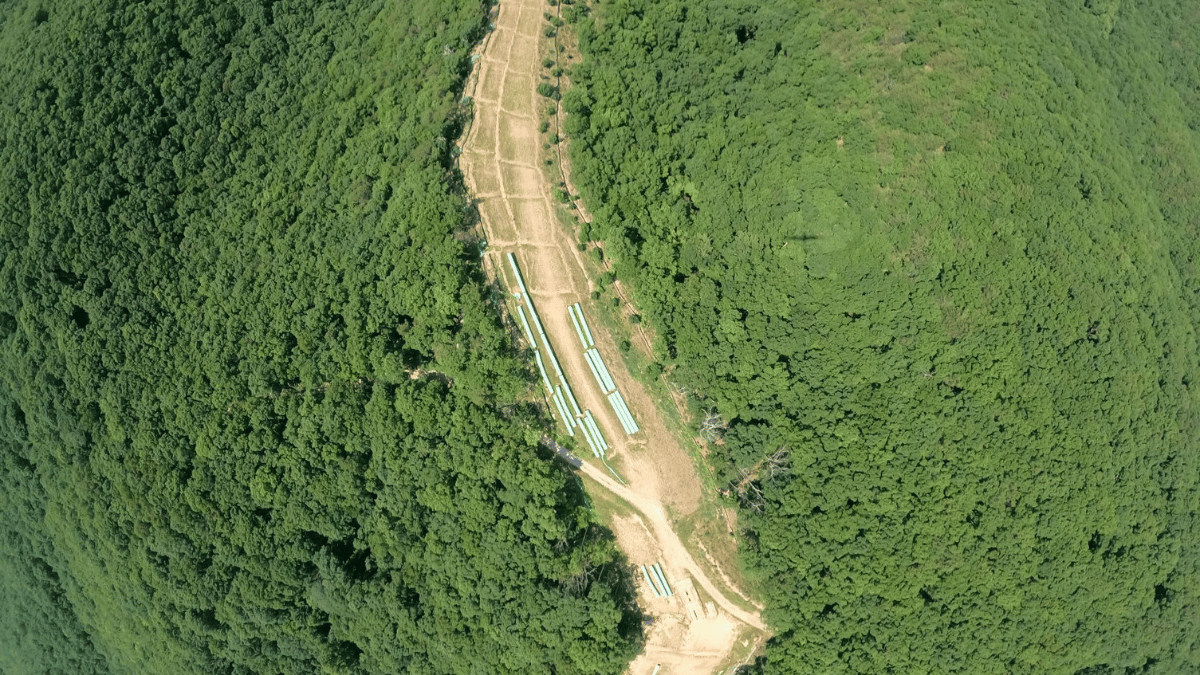The U.S. Fourth Circuit Court of Appeals sided with environmental groups Tuesday and threw out a major federal water crossings permit for the Mountain Valley Pipeline.
Environmental advocates said the move could significantly slow down construction through much of West Virginia and is expected to affect about 160 miles of the pipeline’s route in the state.
In an order released just days after the court heard the case Friday, the court vacated the pipeline’s water-crossings permit issued by the U.S. Army Corps of Engineers’ Huntington District. The district encompasses much of the state, including the southern region, and the order affects major river crossings for the Elk, Gauley, Greenbrier and Meadow rivers.
History in the Courts
The Nationwide Permit 12 allows pipeline developers to disrupt streams, rivers and wetlands during construction, while maintaining water quality standards under the federal Clean Water Act.
The court in June halted construction of the 303-mile pipeline under bodies of water, because the pipeline developer’s own documents showed they could not complete construction quickly enough to comply with the federal Army Corps permit.
In late August, hours after the Federal Energy Regulatory Commission decided construction could continue more broadly across the Mountain Valley Pipeline’s route, the 4th Circuit lifted its stay on water crossings in West Virginia.
‘Major Win’
But on Monday, the same court agreed with arguments made by environmental groups that the Army Corps erred when it allowed pipeline developers to use the “dry cut” method to install the pipeline through rivers and streams. That method includes damming the water source before pipeline installation and can take 4 to 6 weeks.
West Virginia environmental regulators proposed additional stipulations on the pipeline under the Nationwide Permit 12. The state requires all stream crossing be done within 72 hours.
“We conclude, for reasons to be more fully explained in a forthcoming opinion, that the Corps lacked authority to substitute the ‘dry cut’ requirement ‘in lieu of’ West Virginia’s 72-hour temporal restriction,” the order stated.
The West Virginia DEP is currently weighing whether it should change the 72-hour special consideration for pipeline stream and river crossings.
Environmental groups called the decision a major win. In an emailed statement, Appalachian Mountain Advocates said it will “significantly impede construction of the Mountain Valley Pipeline for the foreseeable future.”
They said the Army Corps will likely have to do additional environmental analysis and will likely be required to issue a project-specific Clean Water Act permit or “individual” permit, rather than the more general Nationwide Permit 12.
The Nationwide Permit 12 covers all stream and wetland disruptions caused by utility line construction nationwide. It is one of about 50 broader so-called “general permits” that can be granted under Section 404 of the Clean Water Act.
Mountain Valley Pipeline spokeswoman Natalie Cox said in an email that developers were “disappointed” by the decision.
She said project developers are “evaluating options to understand its ability to continue with construction activities that do not include stream and wetland crossings along this portion of the route.”
